Welcome to Katti Kidney Clinic
Expert Urological Care for Optimal Kidney Health
Katti Kidney Clinic provides a full range of urological services to address a variety of urinary health concerns, from kidney stones to bladder cancer. We utilize the latest diagnostic tools and treatment techniques to provide our patients with the best possible care.
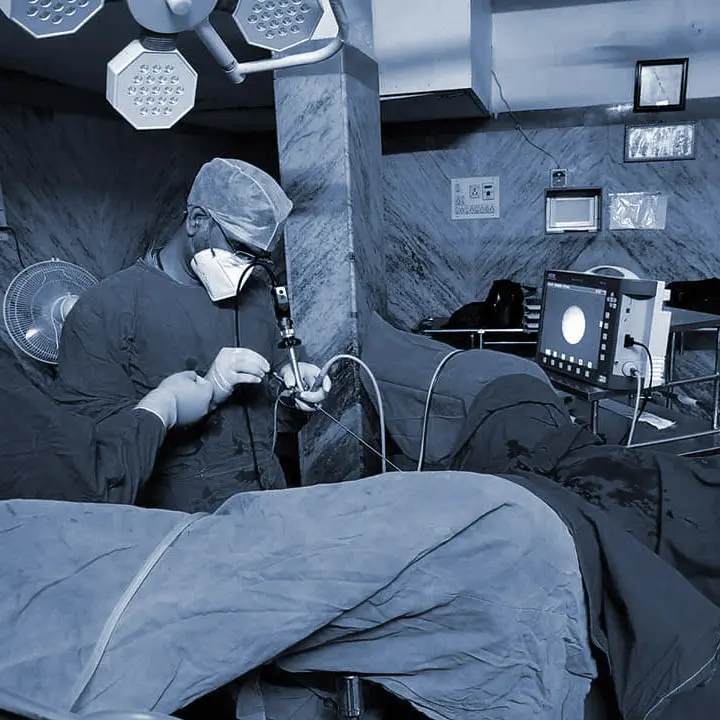
A Note from Dr. Pawan Katti
At Katti Kidney Clinic, we believe that personalized care is key to achieving optimal outcomes. That's why we take the time to get to know each patient and understand their unique health concerns, goals, and preferences. We work closely with our patients to develop individualized treatment plans that are tailored to their specific needs, utilizing the latest diagnostic tools and treatment techniques to ensure the best possible outcomes.
We understand that dealing with urinary health issues can be stressful and overwhelming, which is why we strive to create a warm and welcoming environment where patients feel comfortable and supported throughout their treatment journey. We are here to answer any questions you may have and provide the support you need to achieve your optimal health.
Thank you for considering Katti Kidney Clinic for your urological care needs. We look forward to working with you to achieve your best possible health outcomes.
Dr. Pawan Katti

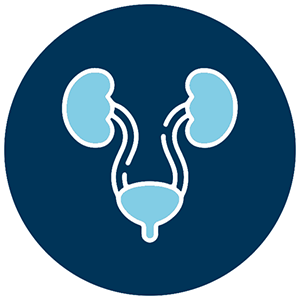
Services
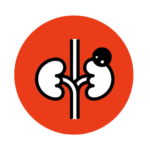
Kidney stones and ureteric stones are two types of urinary tract stones that can cause severe pain and discomfort.
Kidney stones are solid mineral deposits that form in the kidneys. They can vary in size from as small as a grain of sand to as large as a golf ball. Kidney stones can be composed of different minerals such as calcium, oxalate, and uric acid. They can cause intense pain in the back, side, or abdomen, and may also cause nausea, vomiting, and blood in the urine.
Ureteric stones, also known as ureteral stones, are kidney stones that have moved into the ureter, which is the narrow tube that connects the kidney to the bladder. Ureteric stones can cause severe pain in the lower abdomen, groin, or back, and may also cause nausea, vomiting, and blood in the urine.
Both kidney stones and ureteric stones can be diagnosed using imaging tests such as X-rays or CT scans. Treatment options may include pain management, medications to help pass the stones, and in some cases, surgical procedures to remove the stones. Preventative measures such as staying well-hydrated and following a healthy diet can also help reduce the risk of developing these types of stones.

Urethral stricture disease is a condition characterized by the narrowing or blockage of the urethra, which is the tube that carries urine out of the body. Urethral strictures can occur at any point along the urethra, from the bladder to the external urinary opening.
Urethral strictures can be caused by a variety of factors, including injury, infection, inflammation, or prior medical procedures such as catheterization or surgery. Symptoms of urethral strictures can vary depending on the severity of the narrowing and can include difficulty urinating, a weak urine stream, frequent urination, or urinary tract infections. In severe cases, a complete blockage of the urethra can cause urinary retention, which is a medical emergency.
Diagnosis of urethral strictures may involve a physical exam, imaging tests such as ultrasound or X-rays, or specialized diagnostic procedures such as cystoscopy or uroflowmetry. Treatment options for urethral strictures may depend on the severity of the narrowing and can range from minimally invasive procedures such as urethral dilation or urethrotomy to more extensive surgical procedures such as urethroplasty or urinary diversion. In some cases, long-term catheterization may be necessary to maintain urinary function. With prompt diagnosis and appropriate treatment, most patients with urethral strictures can achieve good outcomes and a return to normal urinary function.

Urology cancer refers to cancers that affect the organs of the urinary system, including the kidneys, bladder, prostate gland, testicles, and penis. Some common types of urology cancer include prostate cancer, bladder cancer, kidney cancer, and testicular cancer.
Prostate cancer is the most common form of urology cancer in men and develops in the prostate gland, which is a small gland located near the bladder that produces seminal fluid. Bladder cancer is the most common cancer of the urinary tract and can occur in the lining of the bladder. Kidney cancer can occur in the cells that line the small tubes inside the kidney, while testicular cancer typically develops in the testicles.
Symptoms of urology cancer can vary depending on the type and stage of the cancer but may include blood in the urine, changes in urination patterns, pain or discomfort in the lower back or abdomen, and swelling or lumps in the testicles or scrotum.
Diagnosis of urology cancer may involve imaging tests such as CT scans or MRI, as well as specialized diagnostic procedures such as biopsies or cystoscopies. Treatment options for urology cancer may include surgery, radiation therapy, chemotherapy, or immunotherapy, depending on the type and stage of the cancer.
Early detection and treatment of urology cancer are crucial for achieving the best possible outcomes. It is important to talk to your healthcare provider if you experience any symptoms or have a family history of urology cancer.
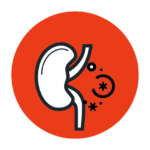
Urinary tract infections (UTIs) are a common type of bacterial infection that can affect any part of the urinary tract, including the kidneys, bladder, ureters, and urethra. UTIs are more common in women than men and can be caused by a variety of factors, including poor hygiene, sexual activity, certain medical conditions, and the use of certain medications.
Symptoms of UTIs can vary depending on the location and severity of the infection but may include a strong and persistent urge to urinate, pain or burning during urination, cloudy or strong-smelling urine, blood in the urine, and lower abdominal pain or pressure.
Diagnosis of UTIs may involve a physical exam, urine tests to check for the presence of bacteria, and in some cases, imaging tests to check for structural abnormalities in the urinary tract. Treatment for UTIs typically involves antibiotics to kill the bacteria causing the infection. In some cases, over-the-counter pain relievers and urinary tract analgesics may also be recommended to help relieve symptoms.
Preventative measures for UTIs may include staying well-hydrated, urinating frequently, practicing good hygiene, wiping from front to back after using the bathroom, and avoiding irritants such as bubble baths or harsh soaps. It is important to seek prompt medical attention if you suspect you may have a UTI, as untreated UTIs can lead to more serious complications, such as kidney infections or sepsis.
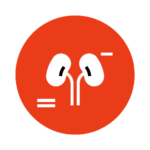
Endo-urology is a specialized field of urology that focuses on the diagnosis and treatment of urologic conditions using minimally invasive techniques. These techniques involve using small instruments and specialized tools to access the urinary tract through natural openings or small incisions, rather than traditional surgical methods.
Endo-urologic procedures can be used to treat a variety of urologic conditions, including kidney stones, urethral strictures, bladder tumors, and prostate enlargement. Some common endo-urologic procedures include ureteroscopy, which involves inserting a small camera through the urethra and bladder to examine the ureters and kidneys, and laser lithotripsy, which uses lasers to break up kidney stones.
Endo-urologic procedures have several advantages over traditional surgical methods, including shorter recovery times, fewer complications, and reduced pain and discomfort. Many endo-urologic procedures can be performed on an outpatient basis, allowing patients to return home the same day as the procedure.
As with any medical procedure, there are some risks associated with endo-urologic procedures, including bleeding, infection, and injury to surrounding organs. However, the risks associated with endo-urologic procedures are generally low, and most patients are able to resume normal activities within a few days of the procedure.
If you have a urologic condition that requires treatment, your healthcare provider may recommend an endo-urologic procedure as a minimally invasive option. It is important to discuss the benefits and risks of the procedure with your healthcare provider to determine if it is the right choice for you.

Male infertility is a condition in which a man has difficulty or is unable to father a child due to problems with his reproductive system. Male infertility affects approximately 1 in 20 men and can be caused by a variety of factors, including physical and hormonal issues, lifestyle factors, and genetic factors.
Some common causes of male infertility include low sperm count or poor sperm motility, hormonal imbalances, varicoceles (enlarged veins in the testes), infections such as sexually transmitted infections (STIs), and certain medications or treatments for medical conditions such as cancer.
Symptoms of male infertility may not be apparent, but some men may experience problems with sexual function or ejaculation, pain or swelling in the testicles, or a decreased desire for sex.
Diagnosis of male infertility may involve a physical exam, semen analysis to evaluate sperm count and motility, and hormone testing to assess testosterone levels. Treatment for male infertility may depend on the underlying cause but may include lifestyle changes such as weight loss or quitting smoking, medications to improve sperm count or motility, or surgery to correct structural issues.
In some cases, assisted reproductive techniques such as in vitro fertilization (IVF) or intracytoplasmic sperm injection (ICSI) may be recommended to help overcome infertility. Counseling or therapy may also be recommended to help couples cope with the emotional and psychological impact of infertility.
If you are experiencing difficulty conceiving, it is important to talk to your healthcare provider to determine the underlying cause and explore potential treatment options.

Male sexual problems refer to a range of conditions that can affect a man’s ability to have or enjoy sexual intercourse. These problems can include erectile dysfunction, premature ejaculation, delayed ejaculation, and low libido.
Erectile dysfunction (ED) is the most common male sexual problem and refers to the inability to achieve or maintain an erection sufficient for sexual activity. ED can be caused by physical factors such as diabetes, high blood pressure, or heart disease, or psychological factors such as stress, anxiety, or depression.
Premature ejaculation (PE) is a condition in which a man ejaculates too quickly during sexual activity, often before he or his partner is ready. PE can be caused by a variety of factors, including anxiety, stress, or certain medications.
Delayed ejaculation is a condition in which a man has difficulty ejaculating, often taking a long time to reach orgasm or not being able to ejaculate at all. This can be caused by physical factors such as nerve damage or medications, or psychological factors such as anxiety or depression.
Low libido refers to a decreased desire for sexual activity and can be caused by a variety of factors, including stress, fatigue, hormonal imbalances, or relationship problems.
Diagnosis of male sexual problems may involve a physical exam, medical history, and laboratory tests to assess hormone levels or other potential underlying medical conditions. Treatment for male sexual problems may depend on the underlying cause and can include medication, therapy, or lifestyle changes such as exercise or dietary modifications.
If you are experiencing male sexual problems, it is important to talk to your healthcare provider to determine the underlying cause and explore potential treatment options.

Pediatric urology is a specialized field of medicine that focuses on the diagnosis and treatment of urologic conditions in children. These conditions can affect the urinary tract, bladder, kidneys, and genitalia.
Pediatric urologic conditions can include congenital abnormalities such as undescended testicles, hypospadias (abnormal positioning of the urethral opening), and vesicoureteral reflux (a condition in which urine flows backward from the bladder to the kidneys). Other conditions can include urinary tract infections, kidney stones, and bedwetting.
Diagnosis of pediatric urologic conditions may involve a physical exam, medical history, imaging tests such as ultrasound or MRI, and laboratory tests such as urine analysis. Treatment for pediatric urologic conditions may depend on the underlying cause and can include medications, surgery, or other interventions.
Pediatric urology requires specialized training and expertise, as children have unique anatomical and physiological differences from adults. Pediatric urologists work closely with pediatricians and other healthcare providers to provide comprehensive care to children with urologic conditions.
If you are a parent or caregiver of a child with a urologic condition, it is important to seek care from a qualified pediatric urologist who can provide specialized expertise and care tailored to your child’s unique needs.
Testimonials

Dr. Pawan Katti is one of best urologist in karnataka. He treated my father and is very comfortable after operating. Thank you very much Sir.
Anil Solaragoppa

Dr. Pawan Katti is really an amazing doctor. We like his service. He had made my dad's surgery. He was having huge stones in his bladder he operated and he is really fine now.
Nikita Irkal

Thank you Pavan Katti sir for the operation, my mother had a stone removal from gal bladder. This was a massive relief to her. Very much satisfied with the treatment.
Srinivas NV

Phone
Address
Important Links
Clinic Hours
Monday
2pm - 7pm
Tuesday
2pm - 7pm
Wednesday
2pm - 7pm
Thursday
2pm - 7pm
Friday
2pm - 7pm
Sat
2pm - 7pm
Sunday
Closed
Appointment Booking
From 10am
